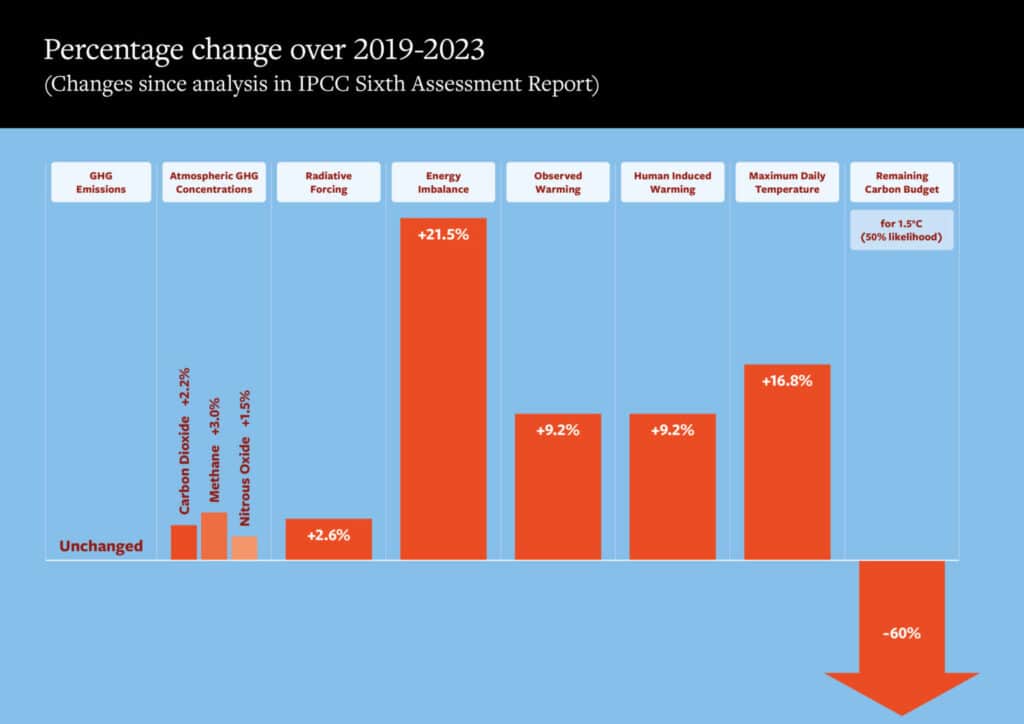
The second annual Indicators of Global Climate Change report, which is led by the University of Leeds, reveals that human-induced warming has risen to 1.19 °C over the past decade (2014-2023) — an increase from the 1.14 °C seen in 2013-2022 (set out in last year’s report).
Looking at 2023 in isolation, warming caused by human activity reached 1.3 °C. This is lower than the total amount of warming we experienced in 2023 (1.43 °C), indicating that natural climate variability, in particular El Niño, also played a role in 2023’s record temperatures.
The analysis also shows that the remaining carbon budget — how much carbon dioxide can be emitted before committing us to 1.5 °C of global warming — is only around 200 gigatons (billion tons), around five years’ worth of current emissions.
In 2020, the Intergovernmental Panel on Climate Change (IPCC) calculated that the remaining carbon budget for 1.5 °C was in the 300–900 gigatonnes of carbon dioxide range, with a central estimate of 500. Since then, CO2 emissions and global warming have continued. At the start of 2024, the remaining carbon budget for 1.5 °C stood at 100 to 450 gigatons, with a central estimate of 200.
Project coordinator Piers Forster of the Priestley Centre for Climate Futures said:
“Our analysis shows that the level of global warming caused by human action has continued to increase over the past year, even though climate action has slowed the rise in greenhouse gas emissions. Global temperatures are still heading in the wrong direction and faster than ever before. Our analysis is designed to track the long-term trends caused by human activities. Observed temperatures are a product of this long-term trend modulated by shorter-term natural variations. Last year, when observed temperature records were broken, these natural factors were temporarily adding around 10% to the long-term warming.”
The authoritative source of scientific information on the state of the climate is the UN’s Intergovernmental Panel on Climate Change (IPCC), but as its next major assessment will not happen until around 2027, this creates an “information gap,” particularly when climate indicators are changing rapidly. The new report is accompanied by an open data, open science platform — the Climate Change Tracker’s Indicators of Global Climate Change dashboard, which provides easy access to updated information on the key climate indicators.
Other key findings
- Human-induced warming has risen to 1.19 °C over the past decade (2014-2023) — an increase from the 1.14 °C seen in 2013-2022 (set out in last year’s report).
- Human-induced warming has been increasing at a rate that is unprecedented in the instrumental record, reaching roughly 0.26 °C per decade over 2014-2023.
- This high rate of warming is caused by a combination of greenhouse gas emissions being consistently high, equivalent to 53 billion tons of CO2 per year, as well as ongoing improvements in air quality, which are reducing the strength of human-caused cooling from particles in the atmosphere.



